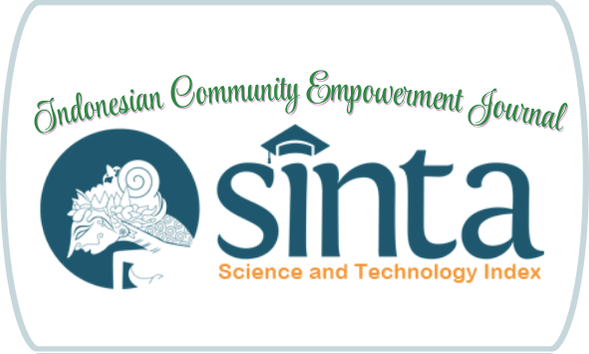Building Resilience: The Role of Community-Based Disaster Preparedness Training in Empowering Lubuk Village, Indonesia
DOI:
https://doi.org/10.37275/icejournal.v4i2.63Keywords:
Community-based training, Community empowerment, Disaster preparedness, Public administration, ResilienceAbstract
Lubuk Village in Bungo Regency, Jambi, Indonesia, faces a range of potential natural hazards, including floods, landslides, and forest fires. Building community resilience is crucial to mitigate the impact of these disasters. This community service initiative focused on empowering residents of Lubuk Village through a comprehensive disaster preparedness training program. A participatory approach was adopted, involving collaboration with village leaders, community members, and local government agencies. The training program consisted of workshops, simulations, and hands-on activities covering hazard identification, risk assessment, early warning systems, evacuation procedures, first aid, and basic search and rescue techniques. The training program enhanced community awareness of disaster risks and strengthened their capacity to respond effectively to emergencies. Participants demonstrated increased knowledge, improved skills, and greater confidence in their ability to protect themselves and their families during disasters. The initiative also fostered community cohesion and strengthened social networks. In conclusion, community-based disaster preparedness training is an effective public administration intervention for empowering communities to face natural hazards. By equipping residents with knowledge and skills, this initiative contributed to building a more resilient Lubuk Village.
Downloads
Downloads
Published
How to Cite
Issue
Section
License
Copyright (c) 2024 HM Chotib, Haesdhona, Syahwami, Hamirul

This work is licensed under a Creative Commons Attribution-NonCommercial-ShareAlike 4.0 International License.










